What are the biggest challenges facing Bolivia’s legal market in the next 12 months?
Recently, the legal market in Bolivia has seen increasing competition, due to mergers of local firms, as well as entry of foreign and regional firms to the Bolivian market and their mergers with local firms. Thus, the challenge we face is competition in the field, as well as keeping our current clients and finding new ones. Yet, this gives Ferrere an opportunity to reinvent itself to meet these challenges, while maintaining the work standards for which it is known.
Do you consider sustainability credentials important to your firm’s business?
Yes, they are important. As a matter of fact, there is a general consensus on this, and clients are more and more active in ensuring that their services incorporate sustainability within the firm.
Have ESG considerations prompted you to re-evaluate the service you provide?
Yes, ESG considerations prompted us to re-evaluate the services we provide. As a matter of fact, we created a regional ESG practice in 2021, to be in an optimal position to assist our clients as they increasingly turn their focus to sustainability issues and ESG-related factors. While environmental, social, and corporate governance factors have always been a part of investment and business decisions, they are now often the cornerstone or the central issue when acquiring, investing, or operating a business. Conversely, when a deal does not materialize or an investor looks to divest a company in its portfolio, a lack of sustainability or ESG risks are often cited as contributing factors. So, these issues are no longer aspirational; they are key concepts in our clients’ businesses, and therefore also in our own.
Looking forward, we expect ESG concepts to permeate every part of the business cycle, and businesses will be required, not only by the market but also by increasingly demanding legislation, to know and inform where their raw materials come from, who their suppliers are, how they relate to their employees, and how their operations impact their communities and the environment. To assist our clients in navigating this change in paradigm and adapting their business operations accordingly, our new ESG practice brings together professionals from our environmental, compliance, and labor law practices, with the specific task of understanding market demands and regulatory requirements, and their efficient and effective implementation in our clients’ business practices. Furthermore, our ESG practice has the mission of looking inward and deepening our firm’s commitment to sustainability and incorporating ESG concepts into our own operations. For us, this change in how business should be done is welcome and irreversible, and we believe change begins at home.
Where do you feel your clients need the most legal support in the next 12 months?
In general, given the investment opportunities in Bolivia, the areas where our clients will need more support in the short term are corporate matters, mining, oil & gas, technology, tax, compliance, litigation, and structuring investments.
What sets your firm apart from competitors?
High specialization, horizontal structures and high coordination, combined with regional experience. We have a pool of more than 150 lawyers with great expertise in different practices and three jurisdictions. This allows us to combine our lawyers’ strengths and local knowledge of the laws.
What is your perspective on the attractiveness of Bolivia to foreign investors in light of recent election results across the continent and with the relative calming of the domestic political situation?
Bolivia has kept its currency exchange rates stable for the last decade. This means security not only for the internal market, but also for foreign investors. Additionally, Bolivia has markets that are developing and growing, such as agrobusiness, mining, hydrocarbons, and infrastructure. It is also important to highlight that many startups have started developing in Bolivia, which are not only important at a local level, but also internationally.
How are domestic clients responding to the return to governance of Mas and policies such as the patrimony tax and increasing challenges in terms of compliance?
Domestic clients are dealing with the challenges that come about, and complying with every law.
How do you anticipate the fuel-price crisis and other global economic trends resulting from the Russian invasion of Ukraine impacting Bolivia’s economy? Are these factors likely to delay the expected re-introduction of traditional socialist policy by the current administration?
Given the current exchange rate and its stability, as well as Bolivia’s fuel price subsidies, it has not yet seen many challenges in that regard stemming from the Russian invasion of Ukraine. Notwithstanding, the Russian invasion has had effects in other areas, such as commodity prices and logistic issues.
Are there specific practice areas you see as particularly thriving, which you intend to bolster in coming years? Are there any new areas of practice that have emerged recently?
Given Bolivia’s economy and the recent projects being developed, the practice areas we believe will particularly thrive in the short term are agrobusiness, infrastructure, technology and project finance. A new area that has recently emerged is technology startups.
How active are members of your team in terms of thought leadership?
They are very active. Several of our members are leaders in their respective fields of practice, are sought out for that, and normally participate in activities to further develop their leadership inside the firm and outside.
What are your firm’s policies on diversity and inclusion? Does your firm have any specific diversity initiatives?
For many years FERRERE has embraced the best practices for avoiding bias and favouring D&I in all the firm’s areas and jurisdictions. This commitment was made clear in a regional plan, led by a D&I committee, whose chief objectives are equality of opportunities, social awareness on gender matters and creation of a better workplace for everyone.
The plan has specific programs geared to inclusion, advancement and visibility of all our practitioners. Some examples are:
– “Maternity Mentors”: to provide women with support on all matters related to work-life balance.
– “Cross Mentoring Program”: organizes mentoring sessions between senior men and women mentees within the firm.
– “High Profile Women Attorneys”: FERRERE explicitly and firmly fosters high profiles and involvement of its practitioners – men and women alike – in institutions, organizations and business networks, as well as participation and speaking at conferences leading to professional growth and making a contribution to society that goes far beyond their work with the firm. In the case of women, they have also become models for female junior attorneys.
As a result of these efforts, we can affirm that FERRERE is a benchmark firm in the region in terms of D&I, while leading the indicators of women professionals. Currently, 61% of associates, 57% of counsels, and 30% of partners of FERRERE are women.
What does innovation mean to you? Can you tell us about any specific innovation initiatives at your firm?
At FERRERE we understand innovation as a way of thinking and acting. This means that we deeply understanding the needs and requirements of our clients and other stakeholders, to ever be one step ahead. We also generate proposals and solutions that are as creative as they are efficient.
In fact, innovation has been key since the very conception of the firm. It was then that Daniel Ferrere got back to Uruguay from Harvard with the conviction, contrary to the reality and the consensus at the time, that it was possible to create a highly specialized US-style law firm grounded on meritocracy, and where client service and a focus on practical solutions would be the aim. In 1994 FERRERE added a family hiring exclusion to its partnership agreement, and in 1996 it had its first woman partner.
More recently, FERRERE has innovated in terms of the practice areas and the services it offers. For example, in the past year it stepped up and officialised two practice areas that reflect the dynamics of the business and the firm’s concern to offer highly specialized service: Fintech and ESG.
What technological changes have you implemented at your firm to improve the legal services you provide to your clients?
For several years now, at FERRERE we have been working on updating all our IT systems. This has allowed us not only to be a pioneer firm in terms of information security, but also to be a step ahead of unforeseen events or contingencies.
From well before the COVID-19 pandemic’s arrival, FERRERE was investing in technology and working to foster telecommuting, so that when the virus hit the region it did not pose a major issue in that connection. FERRERE has stepped up those processes and today can respond to any request, beyond the restrictions on movement in each country, and has been able to go from an in-person to a remote working arrangement.
Today, FERRERE is a full-licensed Office 365 firm, and also works with Microsoft Azure for cloud computing services. For desktop telephony, from day one of remote work the firm was able to provide access from the cell phones and laptops of each of its practitioners.
In turn, we incorporated tools that make it possible to share information with clients, avoiding use of email, thereby obtaining greater information control and security.
Some tools such as Teams, Yammer and Avaya Workplace were resources used to the maximum of their potential to guarantee the best interaction between the different teams and the firm’s clients.
We also work with iManage Work10, a business document management software. In turn, we use Easy Doc, an online platform that makes it possible to access templates for standard documents, such as employment contracts, admonishments and suspensions, among others.
Another example of this is that we have begun using Artificial Intelligence for attorneys – programs that interpret texts and extract contract clauses, to cite one example. For large numbers of documents, this makes it possible to see points in common, find the most relevant aspects, etc.
Finally, FERRERE is one of the few firms that submits to external data security audits to certify its information systems.
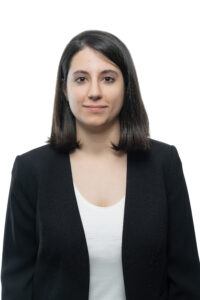 Tell us about your career choice and journey.
Tell us about your career choice and journey.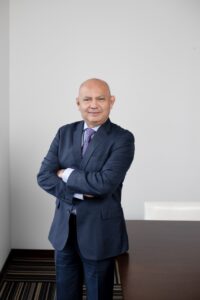 What are the biggest challenges facing Peru’s legal market in the next 12 months?
What are the biggest challenges facing Peru’s legal market in the next 12 months? Tell us about your career choice and journey. What made you decide to get into law?
Tell us about your career choice and journey. What made you decide to get into law?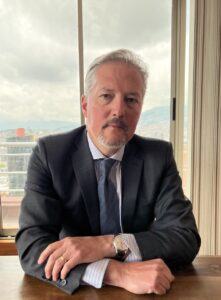 What are the biggest challenges facing Ecuador’s legal market in the next 12 months?
What are the biggest challenges facing Ecuador’s legal market in the next 12 months?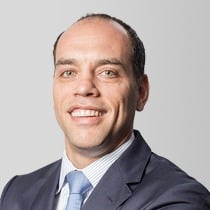 What are the biggest challenges facing Paraguay’s legal market in the next 12 months?
What are the biggest challenges facing Paraguay’s legal market in the next 12 months?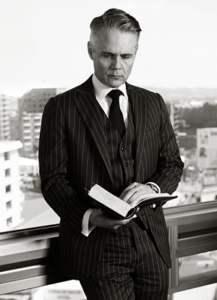 With thanks to Paula Ibargüen, for co-ordinating the content for this interview
With thanks to Paula Ibargüen, for co-ordinating the content for this interview